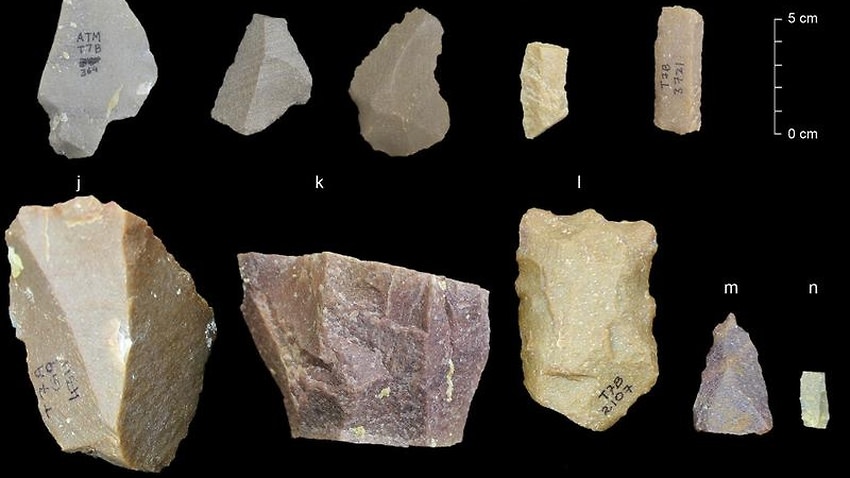
The discovery of advanced ancient tools in India suggests humans may have left Africa earlier than we thought.
A new study says the discovery of stone tools in India suggests early humans may have reached India as long as 250,000 years earlier than previously thought.
Early stone tools discovered in India suggest our human ancestors may have migrated out of Africa much earlier than previously thought.
The study is based on over 7,200 stone artefacts collected and examined from the archaeological site at Attirampakkam, about 60 kilometres from Chennai in the southern Indian state of Tamil Nadu.
The tools found were made between 385,000 to 172,000 years ago, according to Indian and French researchers, marking an earlier start of Middle Palaeolithic culture phase in India – which was believed to have been dated around 125,000 years ago.
The findings in India could prompt a re-examination of the early human migration out of Africa, the researchers say.
The earliest evidence for modern humans suggests Homo sapiens arose in Africa at least 300,000 years ago. Later, they left the continent to colonise the globe, but scientists are divided on when and how.
It is also not certain if it was a single or multiple dispersal. Many scientists believe there were several dispersals from Africa and only some were successful.
A recent discovery of a jawbone fossil in Israel reported last week suggested humans left Africa as early as about 180,000 years ago.
But the Indian discovery, which was published in the scientific journal Nature, suggests there could have been a migration even before that.













